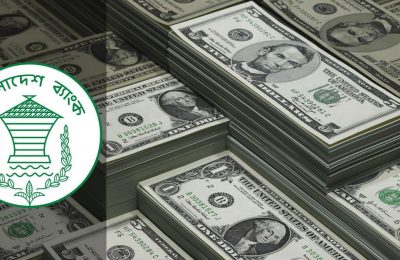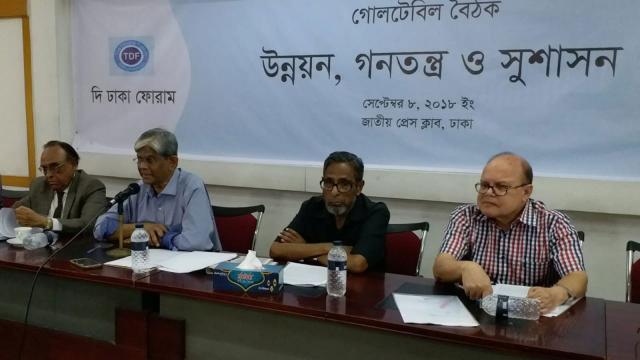Shah Abdul Hannan
The characteristics of Islamic economy can be explained in various ways. I find the following as representative characteristics of a truly functioning Islamic economy or what ought to be in such an economy.
Basic Characteristics of Islamic Economy
- Freedom of work and enterprise: Islam has allowed freedom of work and enterprise. This is evident from the Madinitc model of Islamic economy. A reading of the chapter of any Hadith collection in respect of agriculture, gardening, business etc. will establish this. The Quran also clearly states that “Allah has made business lawful for you (Sura Baqara, Ayat – 275)”
Islam essentially allows economy to operate freely according to the market forces subject to Islamic restrictions and guidelines on production. distribution, marketing, investment trade, exchange, wages etc. The state can also further interfere in this free economy to restore equilibrium and establish justice and other Islamic objectives . In an Islamic economy, there is an “allowability constraint” (a term introduced by Dr. S.N.H Naqvi in his book. (S.N.H. Naqvi: Ethics and Economics. An Islamic Synthesis, First edition, Chapter-5, published by Islamic Foundation, U.K).
An entrepreneur can produce only permitted things. Profit should be normal in such an economy after giving proper wages to the labourers in accordance with Islamic principles. Some forms of trade practices, exchange, investment, and land tenancy in agriculture are prohibited in Islam. It also disallows monopoly and hoarding as social evils. The aforesaid restrictions make “free economy “in Islam qualitatively different from capitalism. Islam con not be said to be capitalistic only because it allows forces of demand and supply to operate in the economy. Forces of demand and supply are fundamental economic forces, which were operational even before capitalism.
- A special concept of ownership: In Islam God is the true owner of all things. The Quran says: “To Allah belongs whatever is in the earth”. (Al- Imran). However, Allah in His mercy allows human beings to inherit wealth, own it and use it subject to His laws as evident from the following verses:
- i) The land belongs to Allah. He allows it, to be inherited by whomso ever he pleases. (Sura Araf, Ayat: 128).
- ii) Do they not see that we have created for them —– among the things fashioned by us—– cattle of which they become owners? (Sura Yasin, Ayat: 29). Islam, therefore, allows man as Vice-gerant, to inherit from Allah (that is to own) wealth. This is indeed a trust for proper use. We may call it Trust ownership.
- Kinds of Ownership: In early Islam there were three kinds of ownership: private, communal and state ownership. The books’ of Hadith are full of accounts of individual ownership. This was the standard ownership. Some important things like water, canals pastures and graveyards were communal properties. The state owned the mines, rivers and large tracts of land. After the conquest of Syria and Iraq, these lands were made state lands and were not allowed to go into private ownership.
(Tafhimul Quran, Sura Hashr, Syed Abul Ala Maududi)
- State Ownership: There is no bar on state ownership of enterprise in Islam. The basic economic institutions may be brought under state control, if this is required to establish social justice or protect the interests of the community.
Islam protects lawful property and is in favour of confiscation of unlawful property. There are some instances of take over of unlawful property during the period of Hazart Omar and Hazrat Omar bin-Abdul Aziz. Lawful property can be taken over by the state only for valid social reasons after due compensation. During the last Hajj the Prophet (SM) announced the principle of protection of lawful property. The Quran says, “don’t eat each other’s property wrongfully ” (Sura Nisa,Ayat- 29).
- Prohibition of Interest: Islam prohibits interest. This requires a total reorganization of the economy, banking, investment, exchange, business and international trade. Already in the last 30 years hundreds of Islamic banks and financial institutions have been set up and this has become an alternative mode in most Muslim countries and some non- Muslim countries. Its viability and practicability has been accepted by economists and bankers and many consider this system superior in some respects. A body of literature has already come up on this subject.
- Zakat: Islam has made Zakat compulsory on the wealth of rich Muslims. This is spent for the weaker and distressed sections of the society. Zakat not only distributes wealth between the rich and the poor of the society, it also influences investment, savings and allocation of income and resources. A detailed study has been made in this regard by Dr. Monzer Kahf in his book “Islamic Economy” American Trust Publications, USA, A rich body of literature has come up in recent times on Zakat. The Zakat and Ushr ordinance of Pakistan can be particularly referred to in this connection.
- Concern for Poor: This is a special feature of Islam. Zakat is one institution which testifies to this. In this connection we may refer to ayat 5-6 of Sura Qasas.
) We desired to show favour into those who were depressed in the earth, and to make them leaders and to make them inheritors and to establish them on earth (Sura Qasas, Ayat: 5-6)
In these verses Allah, the Almighty has expressed His desire to show favour on the depressed people. Islamic economy shall establish all possible institutions to carry out this desire of the Almighty.
- Distribution of inheritance: Islam has not left the distribution of inheritance on the whims of a person, In Islam a person can not favour one over the other of his relations for temporary or subjective reasons as is the rule in the West. Islam distributes inheritable property among several groups of people:
- i) Children
- ii) Husband/Wife
iii) Parents
- iv) Brothers and sisters in certain situations.
This distribution has taken care of different groups keeping in view their social role, requirements and proximity of kinship relationships. For those who remain outside the list of inheritors. Islam has provided for wasiat (will) for all such relations if they are in a distressed condition. A person can will upto one 3rd of his/her property for distressed relations or others outside the inheritors.










